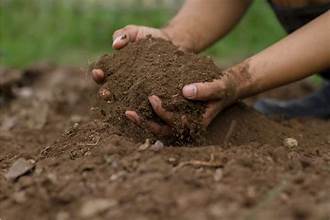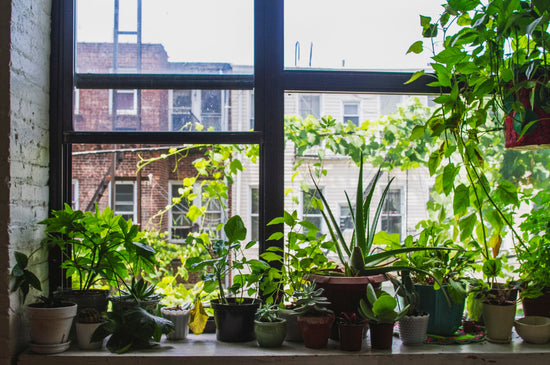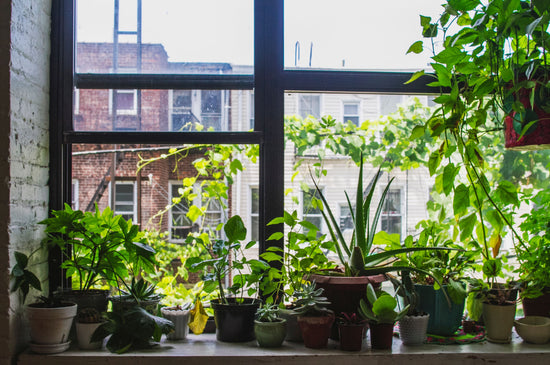How Do I Keep My Soil Acidic Enough for Blueberries?
Blueberry plants are unique in their requirement for highly acidic soil. To grow healthy and productive blueberry bushes, you’ll need to maintain soil pH between 4.5 and 5.5. Keeping soil acidic enough for blueberries can be challenging, especially in regions where soil naturally leans toward neutral or alkaline. In this guide, we’ll discuss why acidic soil is essential, how to test and amend your soil, and tips for maintaining the ideal pH for blueberries.
Why Blueberries Need Acidic Soil
Blueberries are part of the Vaccinium genus, which includes several acid-loving plants. Their roots are specially adapted to thrive in acidic environments, allowing them to absorb nutrients efficiently. When the soil pH is too high (neutral or alkaline), blueberry plants struggle to take in nutrients like iron, magnesium, and phosphorus, leading to nutrient deficiencies, poor growth, and reduced berry production.
Testing Your Soil pH
Before planting blueberries, it’s crucial to test your soil to determine its current pH. Testing will give you a baseline to understand how much amendment is needed.
-
Home Soil Test Kits: These are affordable and easy to use. Simply collect a soil sample and follow the kit’s instructions to measure the pH level.
-
Professional Soil Testing: Many local agricultural extension services offer soil testing. They provide more detailed results, including specific nutrient levels, which can be helpful for creating a soil amendment plan.
-
Digital pH Meters: A digital pH meter provides quick and accurate readings and is reusable, making it a good investment if you plan to grow several acid-loving plants.
How to Acidify Soil for Blueberries
If your soil test reveals a pH above 5.5, you’ll need to acidify the soil. Here are some effective methods for lowering soil pH:
1. Add Elemental Sulfur
Elemental sulfur is one of the most effective and commonly used amendments for lowering soil pH. It reacts with soil microbes to form sulfuric acid, which gradually reduces pH.
- Application: Use 1-2 pounds of sulfur per 100 square feet for sandy soils and 3-4 pounds per 100 square feet for clay soils. Apply sulfur in the fall, if possible, as it takes several months to affect pH.
- Precaution: Avoid over-applying sulfur, as excessive acidity can harm the plant.
2. Use Peat Moss
Peat moss is a natural, acidic soil amendment that can lower soil pH while improving soil structure and moisture retention.
- Application: Mix peat moss into the top 6-8 inches of soil before planting. For existing blueberry plants, add a layer of peat moss around the base of the plant and gently work it into the soil.
- Note: Peat moss is an organic option, but it may take time to lower pH significantly.
3. Apply Ammonium Sulfate Fertilizer
Ammonium sulfate is a nitrogen-based fertilizer that can help acidify soil over time, making it a practical choice for both fertilizing and maintaining acidity.
- Application: Apply 1-2 tablespoons of ammonium sulfate per plant, spreading it evenly around the base and watering it in. Repeat in early spring and mid-summer as needed.
- Caution: Avoid over-fertilizing, as excessive nitrogen can harm blueberry roots. Follow recommended amounts based on soil test results.
4. Use Acidic Mulches
Mulching with acidic materials, such as pine needles or pine bark, can help maintain soil acidity over time. These materials gradually break down and add organic acids to the soil, helping to keep pH in the ideal range.
- Application: Spread a 2-3 inch layer of pine needles or pine bark around the base of the plant, keeping it a few inches away from the stem. Replace mulch as it decomposes.
5. Water with Acidified Water
In regions with alkaline tap water, regularly watering with this water can gradually raise soil pH. You can combat this by using rainwater or acidifying your water.
- Rainwater: Collect rainwater in a barrel and use it for watering blueberries, as it’s naturally acidic.
- Acidify Tap Water: To lower the pH of tap water, mix 1 tablespoon of white vinegar with 1 gallon of water and use it to water your blueberries once a month.
Maintaining Acidic Soil for Blueberries
Once you’ve achieved the desired soil acidity, regular maintenance is essential to keep it in the optimal range. Here’s how to maintain the soil pH over time:
-
Monitor pH Annually: Soil pH naturally changes over time, so test it annually to ensure it stays within the 4.5-5.5 range. If the pH starts to rise, reapply sulfur or peat moss as needed.
-
Add Fresh Mulch: Refresh the pine needle or pine bark mulch annually to keep adding organic acids to the soil. This not only maintains pH but also helps retain soil moisture and suppresses weeds.
-
Use Acidic Fertilizers: Fertilizers formulated for acid-loving plants (like those for azaleas or rhododendrons) can help maintain soil acidity while providing essential nutrients for blueberries.
-
Avoid Alkaline Additives: Avoid adding lime, wood ash, or other alkaline materials near your blueberry plants, as they will raise the pH and counteract the acidic amendments.
Common Signs of pH Imbalance in Blueberries
If the soil is not acidic enough, blueberries may show signs of nutrient deficiency, as they can’t effectively absorb nutrients. Here are some common symptoms to watch for:
- Yellowing Leaves: Known as chlorosis, yellowing leaves (often with green veins) indicate iron deficiency, which occurs when soil pH is too high.
- Stunted Growth: When blueberry plants can’t absorb essential nutrients, they may grow more slowly and fail to reach their full size.
- Poor Berry Production: High pH can reduce berry yield, resulting in smaller, fewer berries that lack flavor.
If you notice these symptoms, test the soil pH and take steps to adjust it back into the acidic range.
Common Questions About Acidifying Soil for Blueberries
-
How long does it take for sulfur to lower soil pH?
Elemental sulfur takes several months to react fully with the soil, so apply it in the fall if you’re preparing soil for new plants. For existing plants, give the sulfur time to adjust the pH gradually. -
Can I use coffee grounds to acidify soil for blueberries?
Coffee grounds are slightly acidic and can be added to blueberry soil as a light amendment. However, they don’t significantly lower soil pH, so use them as a supplement rather than a primary acidifier. -
Is vinegar safe for acidifying blueberry soil?
Vinegar can be used to acidify water for blueberries, but it’s not recommended to pour directly onto soil in high concentrations. Use a diluted mixture (1 tablespoon vinegar per gallon of water) and apply sparingly to avoid harming the roots. -
Can I grow blueberries in alkaline soil if I use acidic amendments?
Yes, with regular amendments, it’s possible to grow blueberries in naturally alkaline soil. However, you’ll need to consistently monitor and maintain soil pH to keep it within the acidic range.
Conclusion
Maintaining acidic soil is essential for growing healthy and productive blueberry bushes. By using amendments like sulfur, peat moss, and acidic mulches, you can create an ideal soil environment and help your blueberry plants thrive. Regular monitoring and maintenance will keep the pH in the desired range and ensure that your blueberry plants have the right conditions to produce flavorful, abundant berries season after season. With the right care, you can enjoy the rewards of a healthy and fruitful blueberry garden for years to come.





